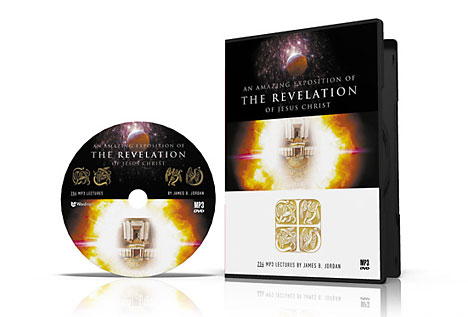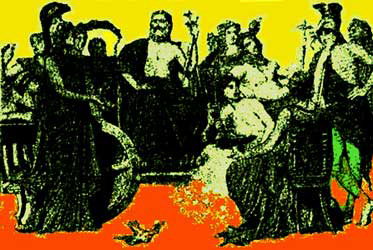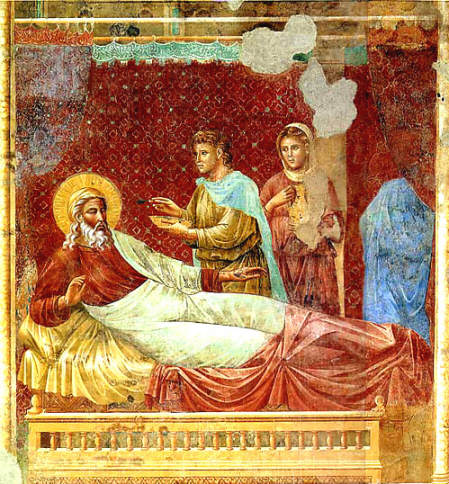Jun
20
2013
 The intro to the Reading the Bible in 3D seminar mentions the “jokes” in the Bible. In his book Deep Exegesis, Peter Leithart gives us a rundown on what a joke is to justify using the word to describe some of the allusions in Scripture. One of the reasons jokes are funny is their reliance on inside information.
The intro to the Reading the Bible in 3D seminar mentions the “jokes” in the Bible. In his book Deep Exegesis, Peter Leithart gives us a rundown on what a joke is to justify using the word to describe some of the allusions in Scripture. One of the reasons jokes are funny is their reliance on inside information.
Here’s my all-time favourite joke in the Bible.
Continue reading
Comments Off | tags: Covenant Theology, Daniel, Esther, Genesis, James Jordan, Joseph, Mordecai, Peter Leithart, Revelation, Typology | posted in Bible Matrix, Biblical Theology, Reading the Bible in 3D
Apr
23
2013
James Jordan’s must-have Revelation lecture series

What Is Revelation Really About?
Continue reading
Comments Off | tags: James Jordan, Revelation | posted in Biblical Theology, The Last Days
Mar
27
2013

“For thus says the Lord of hosts: ‘Once more (it is a little while) I will shake heaven and earth, the sea and dry land…”
(Haggai 2:6)
Many modern commentators hamstring various parts of the Bible so they don’t run against the grain of modern scientism and historical revisionism. They do this by “classifying” the bits of Scripture that offend modern theory into neat literary genres. “If Genesis is poetry, it can’t be historical,” and other stupidities. Nice try. Another one is “apocalyptic,” a genre which, to the eye of unbelief, might appear to actually exist.
Continue reading
2 comments | tags: Covenant Theology, Genesis, Hermeneutics, James Jordan, Revelation | posted in Biblical Theology, The Last Days
Mar
10
2013
 One of the reasons why moderns (including Christians) don’t really know what to do with the Mosaic Law is the failure to understand biblical history as a process of maturation. The prohibition of the second (kingly) tree in the Garden corresponds to the Food Laws, for instance. Like Israel’s temporary abstinence from meat (kingly food) in the wilderness, these laws were all for the purpose of humbling, for preparing servants to rule as God’s representatives. Once mature, they would be invited to eat with God as friends, rather than merely attending as servants.
One of the reasons why moderns (including Christians) don’t really know what to do with the Mosaic Law is the failure to understand biblical history as a process of maturation. The prohibition of the second (kingly) tree in the Garden corresponds to the Food Laws, for instance. Like Israel’s temporary abstinence from meat (kingly food) in the wilderness, these laws were all for the purpose of humbling, for preparing servants to rule as God’s representatives. Once mature, they would be invited to eat with God as friends, rather than merely attending as servants.
Continue reading
Comments Off | tags: Alastair Roberts, Deuteronomy, Exodus, James Jordan, Peter Leithart | posted in Biblical Theology
Mar
5
2013
 Were the Nephilim in Genesis 6 angels or aliens?
Were the Nephilim in Genesis 6 angels or aliens?
The Nephilim (“great” or “amazing”) were the first “mighty men” of the Bible. They were the result of the intermarriage between the priestly sons of Seth and the rebellious Cainite kings. The text gives us a split genealogy after the murder of Abel, priests serving God outside the garden, and Cain’s false kingdom (Cain went and built a “fortress” to protect himself). So, humanity was divided into two camps: those who served God as their king and those who rebelled against Him.
Continue reading
17 comments | tags: Cain, Compromise, Genesis, James Jordan, Nephilim | posted in Biblical Theology, Creation, Q&A, The Last Days
Feb
24
2013
 Most of what you have been taught about the Bible — especially by modern experts — is wrong. The dumb things John Dickson said about Genesis 1 on ABCTV this week are a prime example. Academics are capable of astounding levels of cognitive dissonance. Yes, the texts are ancient, but the ancients weren’t idiots, especially when it came to chronology. Treating the text as a myth throws the entire Bible’s chronology out the window. It’s not the ancients who are the idiots in this case.
Most of what you have been taught about the Bible — especially by modern experts — is wrong. The dumb things John Dickson said about Genesis 1 on ABCTV this week are a prime example. Academics are capable of astounding levels of cognitive dissonance. Yes, the texts are ancient, but the ancients weren’t idiots, especially when it came to chronology. Treating the text as a myth throws the entire Bible’s chronology out the window. It’s not the ancients who are the idiots in this case.
Here’s four talks given this week in London by James Jordan. Let him clear away the clutter for you, especially if you are in ministry and have been taught some of the incredibly dumb things invented by those well-meaning but misguided modernist dunderheads in the academies. Learn to read the Bible with new eyes…
Continue reading
8 comments | tags: Hermeneutics, James Jordan, Steve Jeffery | posted in Biblical Theology, Creation
Jan
15
2013

“Jacob didn’t steal the future. He rescued it from a Man who put food first and whose eyes were not yet opened.”
James Jordan has done the Church a great service by rehabilitating the reputations of Noah the drunk, Abraham the liar, Jacob the swindler and Moses the murderer. He has shown us that the context of these so-called sins and crimes mean that they are nothing of the sort. [1] By this, I don’t mean “cultural context” but Covenant context. The reason these great men of God (and their wonderful women) get such a bad rap is because their stories are treated like a bunch of separate things that occurred, from which we must draw obvious and disconnected morals, rather than a single narrative begun in Genesis 1.
Continue reading
Comments Off | tags: Abraham, Covenant Theology, Esau, Genesis, Isaac, Jacob, James Jordan, Noah | posted in Bible Matrix, Biblical Theology
Jan
12
2013
Comments Off | tags: James Jordan | posted in Quotes
Dec
27
2012
or Shekinah People

“The solution here is not, as Calvin believed, to dress the New Covenant’s ethical maturity in the puerile clothing of paedobaptism.”
In The Failure of the American Baptist Culture [PDF], James Jordan, Ray Sutton and others expose the rot at the heart of baptistic theology, which is inherently man-centred. The authors call us from a view of salvation in isolation to a wider vision of the meaning of baptism, which signifies the broader realities of the Covenant of Grace. I learned a great deal about history and Reformed theology, and thoroughly recommend it to you. In my view, however, they don’t go far enough. A call to understand the vital historical connection between circumcision and baptism certainly deals with the errors of the Anabaptists, but when rightly understood, the progressive nature of revelation also exposes the use of paedobaptism as a connection with the Old Covenant as entirely bogus.
Continue reading
4 comments | tags: Baptism, Calvin, Covenant Creationism, Covenant Theology, Federal Vision, James Jordan, Ray Sutton, Tabernacle | posted in Bible Matrix, Biblical Theology, Ethics, Quotes, The Restoration Era
Dec
8
2012

Part 1 | Part 2 | Part 3 | Part 4 | Part 5
We have reached the sixth cycle of Numbers, which seems to include chapters 30-34. Seeing as it has been a while since we looked at Numbers, here’s the overview again, with this next cycle in red.
Overview of Numbers
Genesis/Transcendence – Creation:
1 – Israel called and arranged as a New Creation
Exodus/Hierarchy – Division/Delegation/Passover:
2 – Leadership disputes, failures and judgments
Leviticus/Ethics Given – Ascension/Firstfruits/Altar:
3 – Levitical offerings and “firstfruits” victories
Numbers/Ethics Opened – Testing/Pentecost:
4 – Israel fails the jealous inspection
Deuteronomy/Ethics Received – Maturity/Trumpets:
5 – Israel’s national festal offerings
Joshua/Sanctions – Atonement/Vindication:
6 – Vengeance upon Midian, Dividing the Land
Judges/Succession – Booths/Glory
7 – Yet to see
Continue reading
Comments Off | tags: Ark of the Covenant, Balaam, Covenant curse, Covenant Theology, James Jordan, Joshua, Literary Structure, Moses, Numbers, Phinehas | posted in Bible Matrix, Biblical Theology
 The intro to the Reading the Bible in 3D seminar mentions the “jokes” in the Bible. In his book Deep Exegesis, Peter Leithart gives us a rundown on what a joke is to justify using the word to describe some of the allusions in Scripture. One of the reasons jokes are funny is their reliance on inside information.
The intro to the Reading the Bible in 3D seminar mentions the “jokes” in the Bible. In his book Deep Exegesis, Peter Leithart gives us a rundown on what a joke is to justify using the word to describe some of the allusions in Scripture. One of the reasons jokes are funny is their reliance on inside information.
































